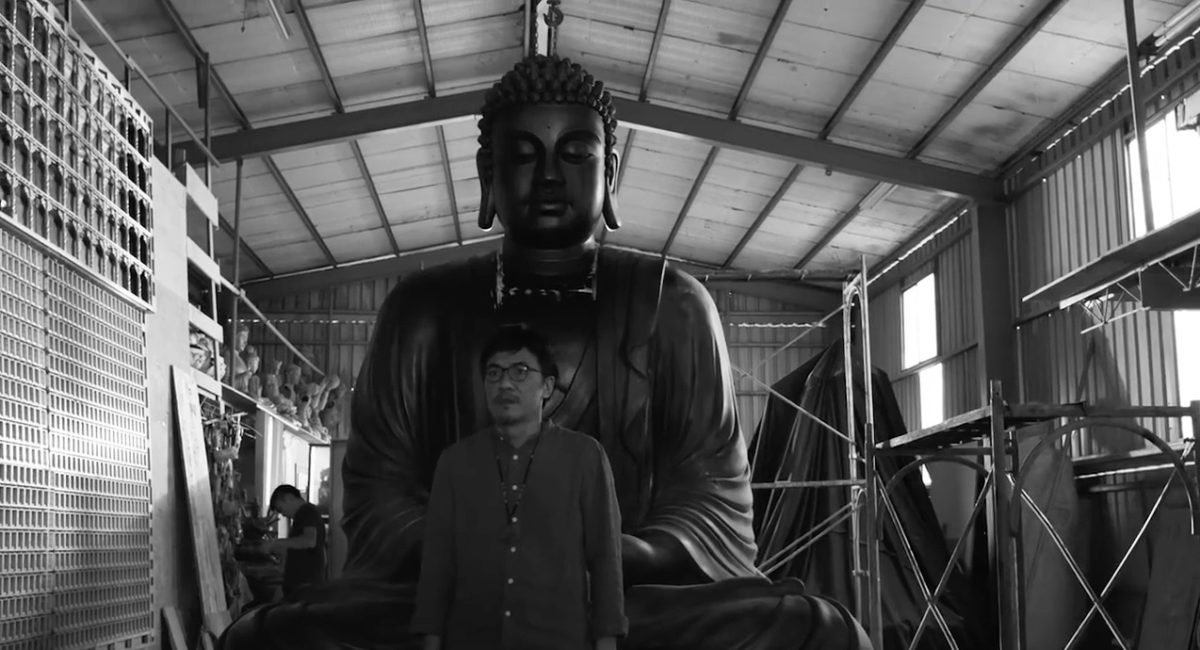Film Friday: ‘The Great Buddha+,’ Taiwan’s award-winning dark comedy, is worth the hype

Director Huang Hsin-yao’s satirical, sometimes bleak dark comedy focuses on class, political corruption, and religion in Taiwan.

The Great Buddha+ 大佛普拉斯 won five awards at Taiwan’s Golden Horse Awards last year, including best director and best adapted screenplay. In April, it won “Best Film from Mainland and Taiwan” at the Hong Kong Film Awards, and Taiwan submitted it as a candidate for the foreign-language category of the 2018 Oscars.
After waiting so long, I was finally able to watch the movie on Christmas, and I’m glad to report it’s well worth the hype.
Director Huang Hsin-yao 黄信尧 previously made satirical documentaries, but The Great Buddha+ is a fictional dark comedy, expanded from his 2014 short The Great Buddha. The Great Buddha+ is also satirical, focusing on class, political corruption, and religion in Taiwan. Set in a small town in the southern part of the island, the loose story follows two middle-aged men living on the edge of society. Trash collector Belly Button will take anything, from expired food to porn magazines, to scrape by, while his friend Pickle spends his mornings working in a factory and his nights as a security guard at the same place. He plays (poorly) in a funeral marching band, and uses what little money he has to take care of his elderly mother.
In stark contrast to these two friends is Kevin, Pickle’s mean, rich boss. Kevin is the owner of GLOBE, a factory that specializes in Buddha statues. (The movie’s title is a reference to a giant Buddha statue the factory is currently constructing.) Kevin studied abroad in the U.S., owns a Mercedes Benz, and has political connections to boot. While he tries to play a philanthropist in public, Kevin is actually a corrupt jerk. At night, when he drives his car around, his dashcam records both the road outside and the audio of the conversations he has with his much younger mistresses.
One night, when Belly Button comes to hang out with Pickle during his security guard shift, he finds that the office’s TV is broken. For some entertainment, he manages to bully Pickle into stealing the SD card from Kevin’s dashcam. There are tons of videos to pass the time, so the pair decides to listen to footage of Kevin and his mistresses talking and fooling around. It’s a rare and fun glimpse into a life they can only dream about, but things take a darker turn when they uncover a video with Kevin and a forty-something mistress who threatens to expose his corruption.
That’s the bulk of the main plot, but it takes over an hour before Belly Button and Pickle stumble on the more interesting tape. The rest of the time the movie devotes to Belly Button’s daily life and the characters he encounters. He looks through trash and gets beaten by cops. He rides motorbikes with Peanut, a bored cashier working at a convenience store that doubles as an arcade. By far, the oddest character is Sugar Apple, a quiet drifter in a turtle shirt who walks all around town. Belly Button is his only friend, yet like the rest of the town, he doesn’t really know anything about Sugar Apple. People speculate he was a sailor or criminal on the run, but all Belly Button can say for sure is that the guy can’t sleep unless he’s listening to the sound of waves at the shore.
Interestingly, the world of Belly Button and his oddball companions is shown in black-and-white, while the only color scenes are the POV shots of buildings and roads from Kevin’s dashcam. Despite its naturalistic acting and setting, the movie has a surprisingly absurdist sense of humor. Director Huang sometimes narrates over what is happening on screen, and there are several instances of characters breaking the fourth wall, too. The humor is genuinely funny, especially the banter between Belly Button and Pickle. In my personal favorite scene, Pickle takes the boys to a rundown temple devoted to Chiang Kai-shek 蒋介石. The simple and empty temple, he explains, expresses “Lord Chiang’s integrity, pure as driven snow.”
Even for a dark comedy, I found The Great Buddha+ quite bleak. Belly Button and his fellow underdogs aren’t sentimentalized; Belly Button suffers at the bottom of society, yet he finds no problem with pushing around a weaker person like Pickle. The movie treats the economic, religious, and political environments around it cynically, with an ambiguous ending. At times, the movie’s pace is slow as well, especially in the first half, before the characters discover Kevin’s most shocking tape.
Overall, however, The Great Buddha+ is a very strong movie. It might be serious in its criticism of income inequality and hypocrisy, yet the eccentric characters and humor blend into the movie’s message well enough. It’s a great contender for even more awards in the future, and I’m definitely looking forward to see what director Huang Hsin-yao will do next.
The Great Buddha+ is available for streaming on Amazon and iTunes.
Film Friday is The China Project’s film recommendation column. Have a recommendation? Get in touch: editors@thechinaproject.com







